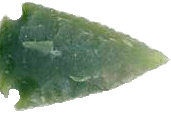Vocabulary
ᎤᏍᏓᎵ - Inchworm
ᎡᏘᏴᏃ - ancient times
ᏥᎨᏎᎢ - it was a fact
ᎡᏆ - big
ᏥᎪᏱ - worm
ᏤᎮᎢ - that s/he it lived (Ꮵ + ᎡᎯ)
ᎠᏂᏴᏫᏯ - The Principal People, The Cherokee
ᎠᏰᎵ - Nation, center
ᏄᏅᏅᎢ - where they had it
ᏳᎵᏍᏓᏴᎾᏃ - when/if it ate
ᏴᏫ - person, people
ᏕᎦᏯᎩᏍᎨᎢ - it ate them
ᎠᏓᏆ - wood (tree) (ᎠᏓ ᎡᏆ = big wood)
ᎢᏳᏍᏗ - like, as if
ᏂᏧᏛᏁᎢ - it (flexible) was hanging next to
ᎦᏣᏃᏍᏓ - straight
ᎤᏅᏓᏒᎢ - mountain
ᎦᏚᎢ - on top
ᎨᏍᏗᏃ - not
ᎬᏑᏯᎩᏍᏗ - for it to be able to be distinguished, picked out from
ᏱᎨᏎᎢ - were
(ᎨᏍᏗᏃ ᎬᏑᏯᎩᏍᏗ ᏱᎨᏎᎢ = so it couldn't be distinguished from, picked out from. See grammar section on Negative Sentences)
ᎠᏂᏍᎦᏯᏃ - the men
ᏳᏂᏃᎴᎾ - when/if they went hunting
ᏱᏧᏓᎴᏴᏍᏓᎾ - it would lean forward
ᎡᎳᏗ - down
ᎢᏣ (W - ᏗᏜ) - toward
(ᎡᎳᏗ ᎢᏣ - downwards)
ᏗᎦᎾᎩᏍᎨᎢ - s/he it picked them up off the ground (cf. ᎦᎾᎩᎠ)
ᎠᎨᏯ - a woman
ᎯᎸᏃ - several
ᎢᏯᏂ - of them (animate)
ᎠᏂᎨᏯ - women
ᎬᏩᏂᏲᎨᏎᎸ - they were lost
ᎩᎳᏃ - until, soon
ᎤᎾᏕᎶᎰᏎᎢ - they noticed it, they found out
ᎾᎾᎵᏍᏗᏍᎬᎢ - it was happening
ᎤᏍᏓᎵ - ᏐᏊ
ᎡᏘᏴᏃ ᏥᎨᏎᎢ ᎡᏆ ᏥᎪᏱ ᏤᎮᎢ ᎠᏂᏴᏫᏯ ᎠᏰᎵ ᏄᏅᏅᎢ. ᏳᎵᏍᏓᏴᎾᏃ ᏴᏫ ᏕᎦᏯᎩᏍᎨᎢ. ᎠᏓᏆ ᎢᏳᏍᏗ ᏂᏧᏛᏁᎢ ᎦᏣᏃᏍᏓ ᎤᏅᏓᏒᎢ ᎦᏚᎢ. ᎨᏍᏗᏃ ᎬᏑᏯᎩᏍᏗ ᏱᎨᏎᎢ ᎤᏍᏓᎵ. ᎠᏂᏍᎦᏯᏃ ᏳᏂᏃᎴᎾ ᏱᏧᏓᎴᏴᏍᏓᎾ ᎡᎳᏗ ᎢᏣ ᏗᎦᎾᎩᏍᎨᎢ ᎠᎨᏯ. ᎯᎸᏃ ᎢᏯᏂ ᎠᏂᎨᏯ ᎬᏩᏂᏲᎨᏎᎸ ᎩᎳᏃ ᎤᎾᏕᎶᎰᏎᎢ ᎢᏳᏍᏗ ᎾᎾᎵᏍᏗᏍᎬᎢ.
Read by Daniel and Driver Pheasant.
The Inchworm - Part One
A long time ago there was a giant Inchworm ("Usta:hli") that lived in the Cherokee country. The Inchworm subsisted by eating people. Standing as straight as a tree on top of a mountain, the Cherokees [below] could not distinguish the Inchworm from the [other] trees. When the men went hunting [in the forest], the Inchworm would lean forward and grab a woman [from the village]. After losing a number of women to the [hungry] Inchworm, the Cherokees realized what was happening.
From Journal of Cherokee Studies by Mrs. Golinda HillTransliteration
Etiyvhno tsigese’i egwa tsihgohi tsehe’i aniyvwiya aye’li nunvnv’i. Yuhlsdayvhnahno, yvwi degayagisge’i. Adahkwa iyusdi nitsudvne’i gatsanosda unvdasv gadu’i. Gesdihno gvhsuyagisdi yigese’i Usdahli. Anisgayahno yuninoleha yitsudaleyvstana eladi itsa diganagise’i agehya. Hilvhno iyani anigehya gvwaniyohoselv kilahno unadelohose’i iyuhsdi nanahlsdisgv’i.


